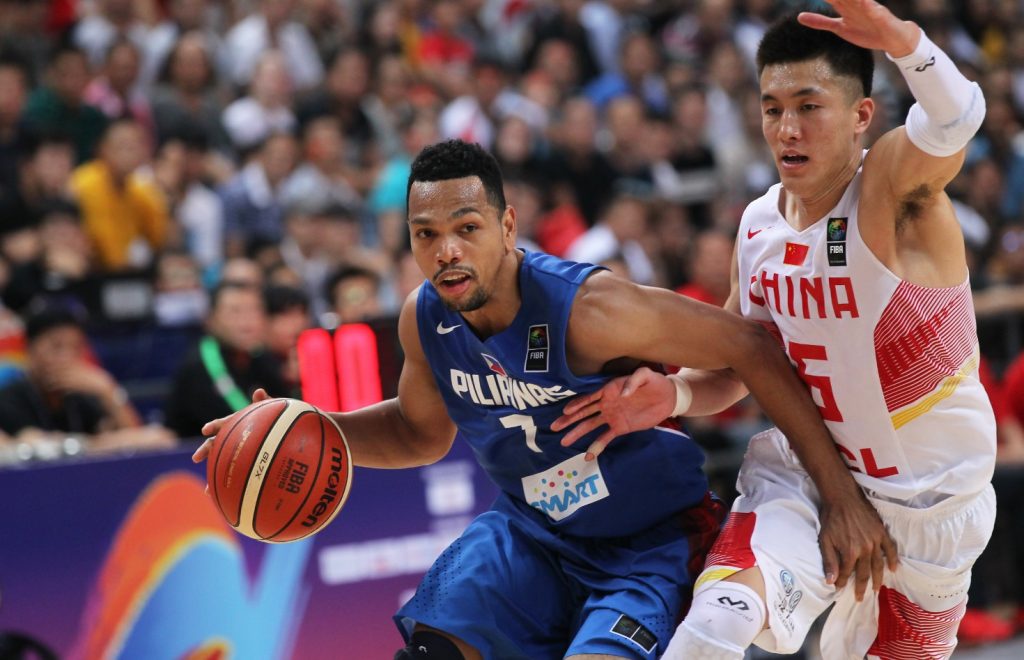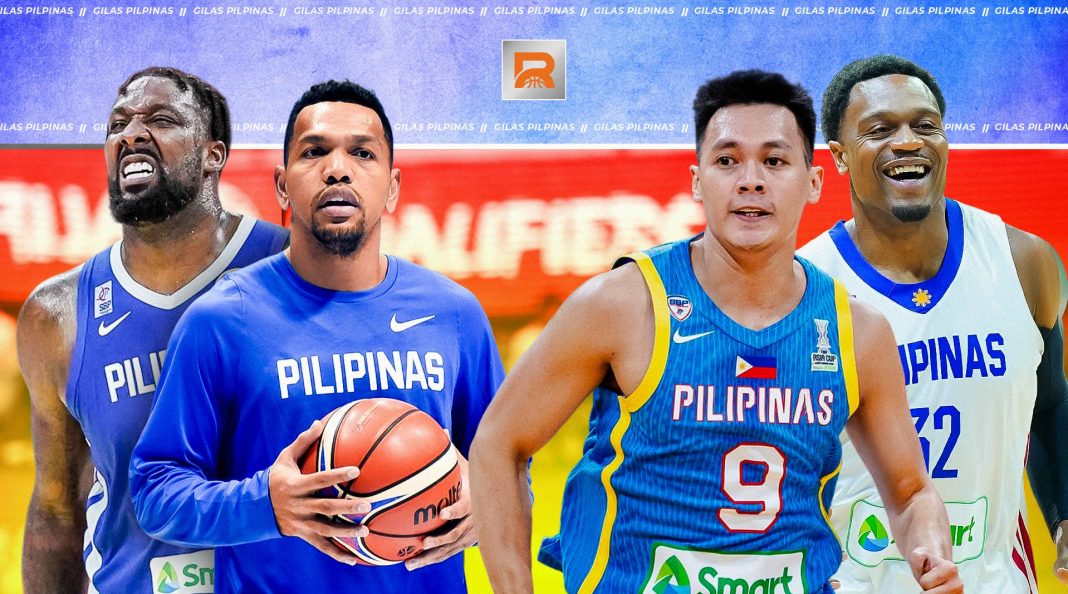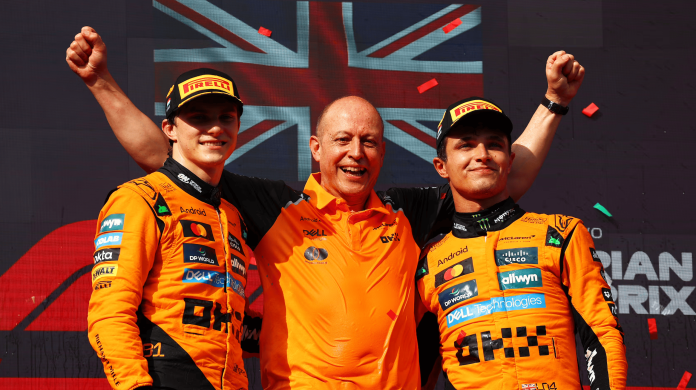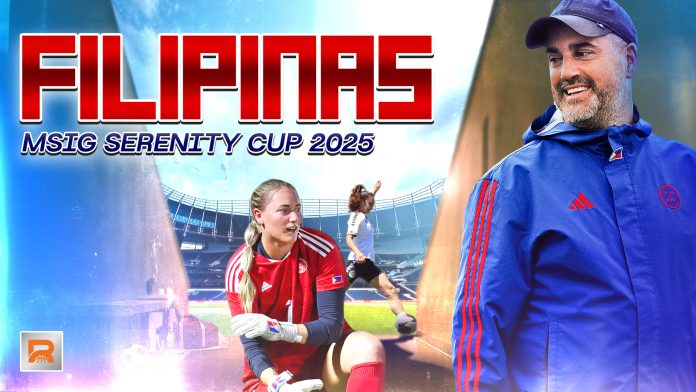It’s been ten years and two tournaments ago since the Philippines last scored a podium finish in the FIBA Asia Cup. But that last time—a silver-medal finish in Changsha, China—was quite memorable as it underscored its status as one Asia’s premier teams.
It was also quite memorable because the Gilas team that secured a silver in China wasn’t necessarily the best one the Philippines had to offer. Sure, it had Andray Blatche, Marc Pingris, Ranidel de Ocampo, Jayson Castro, and Gabe Norwood from that iconic 2014 FIBA World Cup squad. The rest of the lineup, though, was a mixed bag to say the least, with role players like Matt Ganuelas-Rosser and JC Intal joining Calvin Abueva, Terrence Romeo, Dondon Hontiveros, Sonny Thoss, and a 42-year-old Asi Taulava.
Helmed by Tab Baldwin, that Gilas iteration didn’t exactly inspire lofty expectations, particularly from pundits who thought the team just wasn’t good enough. And, lo and behold, that seemed to be the case when the national team began their 2015 FIBA Asia Cup campaign against lowly Palestine.
Shock Loss Greets Gilas in China
Despite questions about its lineup, Gilas Pilipinas was expected to breeze through Group B nonetheless and get to the second round unscathed since it was grouped with in Palestine, Kuwait, and Hong Kong—relative lightweights in Asian basketball.
Then, the games started…
Early on, Gilas versus Palestine played true to form, with the national team racing out to a 27-12 first quarter lead. But Palestine answered right back by outscoring Gilas 28-18 in the second canto to inch to within 45-40 after 20 minutes of action. The Palestinians then dragged Gilas Pilipinas to a war of attrition in the second half, limiting the nationals to 28 measly points—14 in the third and 14 in the fourth—while scoring 35 of their own to pull off the tournament’s first shocker.
Just like that, all those whispers that this Gilas team just wasn’t good enough appeared to be true.

Gilas Pilipinas Turns It Up
It was a sorry loss, all right, but Gilas Pilipinas quickly put it behind them, breezing past Hong Kong, 101-50 before eviscerating Kuwait, 110-64, to advance to the second round along with Palestine and Hong Kong. Getting out of this round promised to be much tougher for the Philippines, with dates against Asian powerhouses Japan and Iran and a game versus emerging India.
But Gilas Pilipinas proved up to the task. First, it outlasted Japan, 73-66, behind an 18-point, 10-rebound double-double from Blatche. Then, the nationals shocked Iran 87-73 thanks to Castro, who exploded for a game-high 26 points as he simply took over in the second half, repeatedly puncturing the Iranians’ defense with lightning-quick drives and cold-blooded jumpers. The Philippines then secured safe passage to the quarterfinals with a 99-65 victory over India, with Romeo this time leading the way with 20 points and 4 dimes.
Unfortunately for Gilas Pilipinas, topping Group E put it in a collision course with Lebanon, which dropped to fourth in Group F with losses to South Korea and China. Even so, Lebanon remained a threat with rising star Wael Arakji, big man Ali Haidar, and shooter Amir Saoud. The Lebanese, though, proved no match for the Filipinos, who once again leaned on the heroics of Castro and Blatche to beat Lebanon, 82-70, and arrange a rematch with the Japanese in the semis.
Blatche and Castro teamed up once more in the semis, with the former going off for 22 points and 13 rebounds and the latter finishing with 20 points and 7 dimes in Gilas’ 81-70 victory. It was the nationals’ seventh straight victory in the tournament—and it sent the team to the gold-medal match against host China.
A Silver Worth Its Weight in Gold
Just like that, the team given up for dead by many was on the cusp of hoops immortality, a win away from accomplishing something very few thought it could. But the final challenge—China on its own floor—was daunting in every way. This Chinese team featured former NBA players Yi Jianlian and Qi Zhou, rising big man Zhelin Wang, standout guard Ailun Guo, and the ever solid Peng Zhou and Geb Li.
China and the Philippines, continental rivals in hoops for the longest time, engaged in a tight opening frame, 23-19, as both teams showed why they were the final two standing in the tournament. The Chinese, however, built some separation in the second canto, outscoring Gilas Pilipinas 23-16 to take a 46-35 lead into intermission. That double-digit lead was all China needed, as Team Dragon held Gilas to a draw in the second half, fending off every uprising en route to winning its 16th FIBA Asia Cup title (most in the tournament’s history).
The loss denied the Philippines what would have been the country’s sixth FIBA Asia Cup title—and first golden finish in 30 years. But it did give the Philippines its 10th podium finish in the tournament, giving the country five gold medals (1960, 1963, 1967, 1973, 1985), four silver medals (1965, 1971, 2013, 2015), and one bronze medal (1969).
Tim Cone-Era Gilas Going for Gold
In a couple of days, Gilas Pilipinas will get another FIBA Asia Cup campaign underway with Tim Cone at the helm, Justin Brownlee as the naturalized player, and a squad of local hoops’ best players. However, no FIBA World Cup slot is at stake since the tournament no longer serves as the qualifier for the most prestigious hoops meet in the world.
Nevertheless, bragging rights and continental supremacy are still at stake, so expect some topnotch basketball in this two-week tournament. Expect Gilas to face some stiff competition, too, as it is grouped with vastly improved Chinese Taipei, Oceania powerhouse New Zealand, and improving Iraq. The road isn’t going to get easier, with potential dates against Lebanon, Iran, China, and Australia possibly on the horizon as well.
Gilas Pilipinas will begin its 2025 FIBA Asia Cup campaign on August 6 against Chinese Taipei, followed by New Zealand on August 7, and Iraq on August 9.








